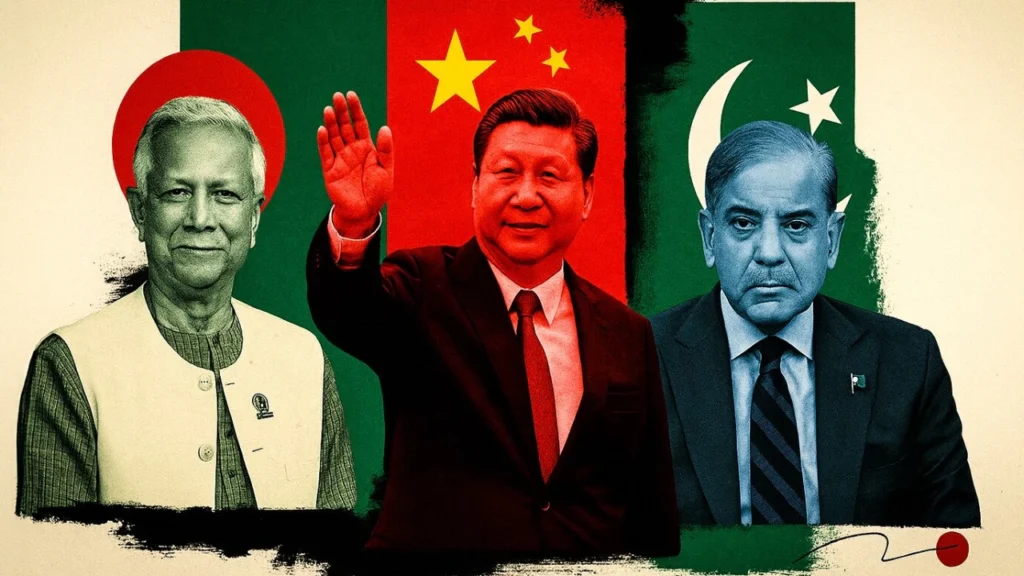Pakistan offers Bangladesh access to Karachi Port in a strategic move aimed at strengthening bilateral trade relations and enhancing regional connectivity. This landmark proposal, discussed during the Sixth Round of Pakistan-Bangladesh Foreign Secretary-Level Bilateral Consultations in April 2025, marks a significant milestone in South Asian economic cooperation and reflects both nations’ commitment to revitalizing their relationship after decades of limited engagement.
Strategic Significance of the Proposal
The initiative whereby Pakistan offers Bangladesh access to Karachi Port is designed to facilitate trade between Bangladesh and China through Pakistani territory. By providing this alternative maritime route, Pakistan aims to reduce transit costs, minimize shipping times, and offer Bangladesh a viable alternative to traditional routes that rely on third-country ports such as Singapore, Malaysia, and Sri Lanka.
The proposal was formally presented during bilateral consultations held in Dhaka on April 17, 2025, the first such high-level dialogue in 15 years, Foreign Secretary Amna Baloch of Pakistan and Foreign Secretary Md. Jashim Uddin of Bangladesh led the discussions, which were characterized by a cordial atmosphere and shared determination to expand cooperation across multiple sectors, including trade, agriculture, education, and maritime connectivity.
Economic experts view this arrangement as mutually beneficial. For Bangladesh, gaining access to Karachi Port opens new opportunities for exporting ready-made garments and leather products while importing raw materials more efficiently. For Pakistan, the initiative positions Karachi as a regional trade hub and strengthens its role in facilitating South Asian commerce.
Building on Historic Maritime Connectivity
When Pakistan offers Bangladesh access to Karachi Port, it builds upon the historic achievement of November 2024, when the first direct cargo vessel in decades successfully sailed from Karachi to Chittagong Port. The Panama-flagged ship Yuan Xiang Fa Zhan carried 2,300 TEUs of diverse cargo, including raw materials for Bangladesh’s garment industry, soda ash, dolomite, and marble blocks.
This direct shipping route eliminated the need for transshipment through third-country ports, significantly reducing both transit time and logistics costs. Pakistan’s High Commissioner to Bangladesh described the development as “a major step” in boosting regional trade and creating new business opportunities for both nations.
Pakistan Offers Bangladesh Access to Karachi Port: Implementation and Future Prospects
The practical implementation of the arrangement whereby Pakistan offers Bangladesh access to Karachi Port is expected to be finalized during the upcoming Bangladesh-Pakistan Joint Economic Commission meeting in Dhaka. The commission, which last convened in 2005, has been reactivated to set bilateral trade targets and establish frameworks for enhanced economic cooperation.
Both countries have also agreed to establish a Joint Working Group on Trade to address technical aspects of the arrangement and ensure smooth operational procedures. This includes customs facilitation, cargo handling protocols, and digital documentation systems to streamline cross-border trade flows.
The distance between Karachi Port and Chittagong Port is approximately 2,907 nautical miles, making direct maritime connectivity economically viable and strategically advantageous. Industry analysts estimate that the new route could reduce shipping costs by 15-20 percent compared to traditional routes involving multiple transshipments.
Regional Implications and Trilateral Cooperation
The development whereby Pakistan offers Bangladesh access to Karachi Port also aligns with broader trilateral cooperation involving China. In June 2025, senior officials from Pakistan, Bangladesh, and China convened in Kunming to explore cooperation in industry, trade, maritime affairs, water resources, and agriculture.
Both Pakistan and Bangladesh participate in China’s Belt and Road Initiative, which aims to create extensive trade networks connecting Asia, Africa, and Europe. The Karachi Port arrangement can be viewed as an extension of the China-Pakistan Economic Corridor objectives, potentially linking Bangladesh to this broader connectivity framework.
Conclusion
As Pakistan offers Bangladesh access to Karachi Port, both nations demonstrate pragmatic economic diplomacy and commitment to regional integration. This initiative transcends historical complexities and focuses on mutual economic benefits, reduced logistics costs, and enhanced trade efficiency. The success of this arrangement could serve as a model for other regional connectivity initiatives, proving that shared economic interests can forge stronger bilateral ties and contribute to regional stability and growth.
Also Read: Bangladesh-Pakistan Reset: Dar’s Dhaka Tour Secures 6 Agreements


